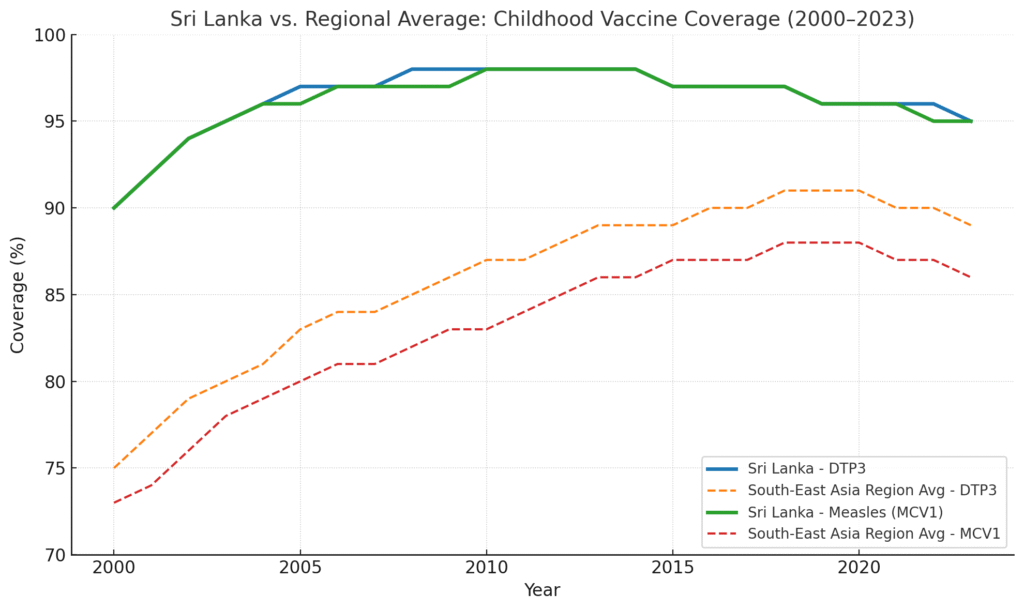Vaccine hesitancy is defined as the delay in acceptance or refusal of vaccines despite their availability and was named by the World Health Organization (WHO) as one of the top ten threats to global health in 2019 (WHO, 2019).

In Sri Lanka, the Expanded Programme on Immunization (EPI) has been a cornerstone of public health success. Childhood immunization coverage consistently exceeds 95% for most vaccines, making the country one of the regional leaders in disease prevention (WHO/UNICEF Immunization Dashboard). These achievements reflect decades of investment in primary healthcare and community-based service delivery.
Yet, even in such high-performing settings, vaccine hesitancy poses a real risk. Globally, confidence in childhood vaccines declined in 52 of 55 countries surveyed during the COVID-19 pandemic, according to UNICEF (UNICEF, 2023). Recent global data published in The Lancet shows that immunization coverage for children has stalled or even reversed in many countries due to disruptions and hesitancy (Lancet Global Health, 2025 via The Guardian).
The Center for Public Health (CPH) is now supporting an MD Community Medicine research project to investigate vaccine hesitancy in Sri Lanka. The project has two aims:
- To identify the underlying drivers of vaccine hesitancy in local communities.
- To develop and validate a context-specific tool for measuring vaccine hesitancy.
Such a tool will equip policymakers, clinicians, and researchers to identify early warning signs, guide communication strategies, and reinforce trust in vaccines.
